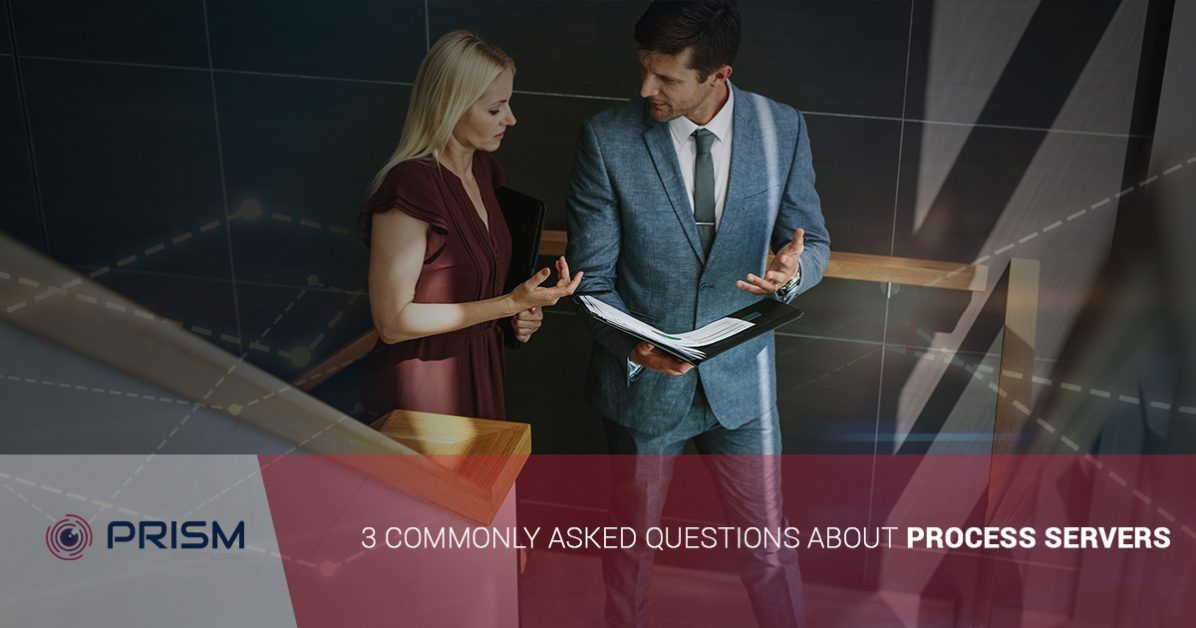Process Servers have a long history of working with the legal and judicial system to deliver a variety of papers from summonses to subpoenas. If you have found yourself wondering what process servers do, then read today’s post that answers some of the most frequently asked questions that we receive. Prism CourtServe in Aurora wants to provide the highest quality service for each of our clients, so call today and start your process.

3 Commonly Asked Questions About Process Servers
1. WHO CAN SERVE PAPERS?
Originally, only sheriffs, deputies, or agents of the court were allowed to serve papers. As the need for servers grew beyond their ability to keep up, and created a burden on the part of law enforcement, the decision was made to change the law. The legislation was reworded so that anyone who is a U.S. citizen, over the age of 18, and a resident of the state where the matter will be tried is able to serve the papers. The process serving laws differ from state to state, so it is important for you to find out if your state also requires a process server to be licensed. When you engage Prism CourtServe to serve papers, you can rest assured that we are properly licensed and ready to accomplish what you need for your case.

2. DOES A PROCESS SERVER NEED TO BE LICENSED?
As we mentioned, each state has different requirements as far as licensing is concerned. Prism CourtServe has the licensure required for the state of Illinois, so you can rest assured that we will be able to help with all of your process serving needs.
3. WHAT IF THE INTENDED RECIPIENT DOESN’T ACCEPT THE PAPERS?
In most cases, service does not have to be accepted by the person in order for it to be considered an effective service. Sometimes, it is sufficient for the person to come to the door and acknowledge that they are the defendant. In some states, proper service is valid if the person admits to being the defendant and is then touched with the papers, or touches the papers themself. If the person refuses acceptance, the process server may simply have to leave the papers at their feet and walk away. If they close the door, then the server may simply have to leave the papers right in front of the door.
The state of Illinois allows for three types of service of summons on an individual defendant.
- The first allowance says that you may leave a copy with the defendant personally.
- The second allowance says that you may leave a copy at their usual place of residence with either a family member, or a person who lives there that is at least 13 years of age or older. The person who receives the documents must also be informed of the contents. The process server must additionally mail a copy of the summons in a sealed envelope that is addressed to the defendant at their usual place of residence.
- The third allowance says that if the defendant is receiving papers alerting them to their violation of parking laws or standing vehicles in cities larger than 500,000, the process service will be considered complete simply by the server providing their certificate or affidavit that they have done so.
There are many questions that we receive about process servers and the jobs that they can do. We hope that the information we provided today is helpful, and you can look forward to future posts that will address even more of the questions we receive. Contact Prism CourtServe today and begin your process.

